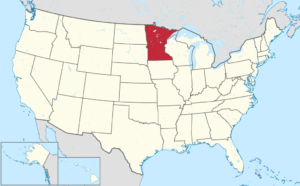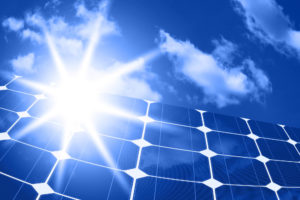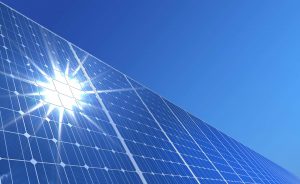 If you are considering investing in solar energy in Minnesota, it’s vital to understand what existing solar energy laws in the state stipulate and how they’ll apply to your situation.
If you are considering investing in solar energy in Minnesota, it’s vital to understand what existing solar energy laws in the state stipulate and how they’ll apply to your situation.
In today’s energy-conscious world, solar power is the way, and more homeowners are now turning to solar energy to power their homes.
The only actual cost associated with solar energy is the cost of equipment and installation. Once installed, solar power is practically free – after all, you are harnessing energy from the sun, a natural resource. Furthermore, Minnesota offers some great incentives when it comes to solar utilities.
Once you’ve fully understood Minnesota solar panel laws, you should have an easier time deciding which solar panel project will suit your solar energy needs. Here is a look at some of the things you need to know about solar panel usage in Minnesota.
Contents
- 1 Key Takeaways
- 2 Homeowners’ Associations (HOAs) and Solar Access
- 3 Solar Easements
- 4 Net Metering in Minnesota
- 5 Community Solar in Minnesota
- 6 Minnesota Solar Incentives
- 7 Federal Solar Investment Tax Credit
- 8 Minnesota Solar Rebates
- 9 Tax Exemptions
- 10 Case Study: Residential Solar Installation in Minnesota
- 11 Expert Insights From Our Solar Panel Installers About Solar Panel Laws in Minnesota
- 12 Experience Solar Excellence with Us!
Key Takeaways
- Homeowners’ Associations (HOAs) in Minnesota may influence whether you can install solar panels, as no specific state laws govern their oversight.
- Minnesota allows homeowners to negotiate solar easements to ensure access to sunlight for their solar systems.
- Net metering rules in Minnesota vary depending on the electricity provider, allowing solar system owners to receive credits for excess energy production on their bills. Community solar programs, state incentives, and tax exemptions make switching to solar in Minnesota financially appealing.
Homeowners’ Associations (HOAs) and Solar Access
Homeowners’ Associations generally describe a locality’s aesthetic rules and may or may not restrict one’s ability to switch to solar. Unfortunately, the state of Minnesota doesn’t have any laws regarding HOA and solar oversight. That means that the HOA in your neighborhood might have a considerable say in whether or not you can install solar panels in Minnesota.
Solar Easements
Fortunately, homeowners in Minnesota are allowed to negotiate for solar easements. Statute, 500.30 of Minnesota law dictates a solar easement’s required components and rules. Easements allow homeowners to negotiate with their neighbors to ensure access to sunlight is guaranteed for the life of their solar system.
Net Metering in Minnesota
Net metering is a policy that permits individuals with solar systems to get credits on their energy bills for the power they produce through their system. Statute 216B.164 of Minnesota law establishes net metering rules in the state. Customers of any rural electric cooperative, public utility, or municipal utility may net meter; however, it’s worth noting that net metering rules vary depending on electricity providers.
Utility customers in Minnesota with net-metered systems are credited for every kilowatt their system produces. Each month is billed for the total number of kilowatt-hours they’ve used, less the total number of kilowatt-hours produced.
Suppose the amount you’ve generated exceeds the much you use in a given month. In that case, you’ll receive credits for extra kilowatt-hours, which are applied in future months when your system isn’t generating electricity.
Electric coops and municipal utilities may charge net-metered customers additional charges to recover associated fixed costs.
On the other hand, customers can also ask for compensation per kilowatt-hour credits, which carry over from month to month. When the year ends, public utility customers are compensated at the cost rate avoided, and customers of electric coops and municipal utilities will have their power credits expire.

Community Solar in Minnesota
Community solar allows you to lease or purchase a “share” in a local community solar project or even start one with neighbors. Each month, members receive credits on their electricity bill for the energy made by their share.
Minnesota community solar programs vary by developer and utility. For instance, in one program known as the Wright-Hennepin Electric Cooperative, members purchase solar panels and own them individually; they then receive bill credits from the cooperative for the electricity their boards produce.
Minnesota Solar Incentives
The state of Minnesota continues to create solar-friendly programs. Lawmakers recently adopted the Institute of Electrical and Electronics Engineers solar interconnection standard, making it much easier for Minnesotans to connect their solar panels to the grid.
The state has also been an industry leader, especially in implementing innovative community programs. Furthermore, the largest utility company in Minnesota, Xcel Energy, currently offers an affordable solar program.
If you are thinking of switching to solar, then you’ll be glad to know that the North Star State truly loves the sun, and switching to solar in the state could be one of the best financial decisions you can ever make.
Federal Solar Investment Tax Credit
This tax credit has the most significant impact on how much you will spend to go solar in the state of Minnesota. The perk is commonly known as the Investment Tax Credit or ITC.
If you install a solar system now, the federal tax credit will be 26 percent of the system’s cost. That’s 26 percent off the solar system’s cost, including labor, permitting, and equipment.
For example, if your system costs $20,000, the federal solar investment tax credit will be 30% of $20000, which is $6,000.
There is a 30% tax credit for systems installed between 2022 and 2032. This is an increase from the previously planned tax credit rates. Starting from 2033, the tax credit will decrease, decreasing to 26% in 2033 and further reducing to 22% in 2034. No maximum limit on the amount can be claimed under this credit.

Minnesota Solar Rebates
Since the state has such a strong renewable portfolio standard, several unique utility rebates are offered to people switching to solar. Most of these rebates are paid as a calculation of $/kW of generating capacity, though one is quite different.
Minnesota Power has a rebate program that’s based on the customer’s first year’s estimated production. The incentive is $.083/kilowatt-hour with an average of 5kW system producing approx. Customers should expect to get about $5,150 back in the form of a rebate for six thousand two hundred kilowatt-hours.
Tax Exemptions
A new solar system is 100 percent exempt from associated property taxes. Once you finish installing a solar system on your home, its value rises significantly – 20X your estimated annual energy savings on electricity.
With the current tax exemptions in place in Minnesota, you will never pay any taxes on your home’s value jump. It’s worth noting that solar power systems in the state are 100 percent exempt from sales taxes, which means you get to save about 7 percent upfront.
As a homeowner in Minnesota, installing solar panels in your home could mean making a profit through rebates in the long run and the opportunity to add value to your home. If you are considering switching to solar in the North Star State, now is the best time to invest!
Case Study: Residential Solar Installation in Minnesota
Background
In Duluth, Minnesota, a family decided to transition to solar energy to reduce their carbon footprint and capitalize on the state’s favorable solar incentives. This case study explores the journey of this residential solar installation, highlighting the challenges and successes encountered along the way.
Project Overview
The family approached Solar Panels Network USA with the goal of installing a solar system that would cover their entire household energy consumption. They were particularly interested in leveraging Minnesota’s net metering policies and solar incentives to maximize their investment.
Implementation
Our team conducted a thorough site assessment, evaluating the roof’s orientation, shading, and structural integrity. Based on the assessment, we designed a 6 kW solar system comprising high-efficiency photovoltaic panels and an inverter to convert the generated power into usable electricity.
To navigate potential issues with the local Homeowners’ Association (HOA), we facilitated discussions with the HOA board, providing detailed plans and addressing any aesthetic concerns. Additionally, we secured a solar easement with neighboring properties to ensure uninterrupted sunlight access.
Results
The installation process was completed smoothly, and the solar system was connected to the grid. The family began benefiting from Minnesota’s net metering policy, receiving credits for excess electricity produced, which significantly reduced their monthly utility bills.
Furthermore, they took advantage of the federal solar investment tax credit, reducing their overall installation costs by 26%. The family also received a rebate from Minnesota Power, further enhancing the financial viability of their solar investment.
Summary
This case study demonstrates the successful implementation of a residential solar system in Duluth, Minnesota. By understanding and navigating local laws and incentives, the family not only achieved energy independence but also maximized their financial returns. Solar Panels Network USA’s expertise in managing HOA negotiations and securing solar easements was instrumental in overcoming potential barriers, showcasing the importance of professional guidance in residential solar projects.
Expert Insights From Our Solar Panel Installers About Solar Panel Laws in Minnesota
Understanding the intricacies of solar easements in Minnesota is crucial for ensuring long-term solar access. Solar easements, as outlined in Statute 500.30, allow homeowners to negotiate and protect their sunlight access, ensuring their investment in solar technology remains viable for decades.
Senior Solar Installer
Net metering in Minnesota provides a significant financial benefit for solar panel owners. By receiving credits for excess energy produced, homeowners can effectively lower their electricity bills, making solar installation not only environmentally beneficial but also economically advantageous.
Lead Solar Technician
Homeowners’ Associations in Minnesota can sometimes pose a challenge when it comes to solar panel installations. While there are no specific state laws governing HOAs and solar oversight, it’s important for homeowners to understand their rights and engage in proactive discussions with their associations to facilitate the installation process.
Chief Solar Installation Engineer
Experience Solar Excellence with Us!
Trust in Solar Panels Network USA, where our seasoned experts deliver top-quality solar solutions for homes and businesses nationwide. With a legacy of countless successful installations and a commitment to sustainable energy, we’re your reliable partner in the solar journey. Ready for a brighter, eco-friendly future? Call us now at (855) 427-0058 and harness the power of the sun!
Map image by Wikimedia Commons User: TUBS / CC-BY-SA-3.0
About the Author
Solar Panels Network USA stands at the forefront of solar energy solutions, driven by a team of seasoned solar engineers and energy consultants. With over decades of experience in delivering high-quality solar installations and maintenance, we are committed to promoting sustainable energy through customer-centric, tailored solutions. Our articles reflect this commitment, crafted collaboratively by experts to provide accurate, up-to-date insights into solar technology, ensuring our readers are well-informed and empowered in their solar energy decisions.

